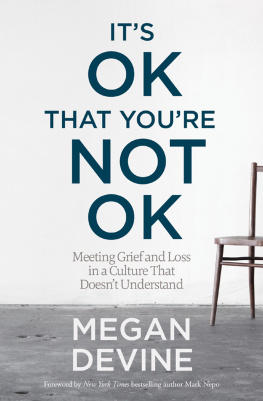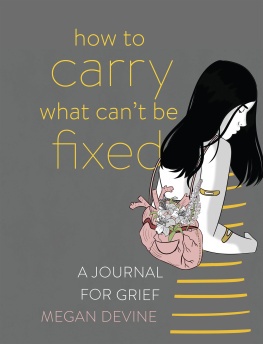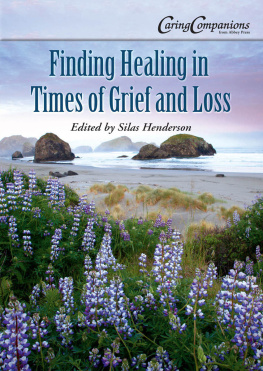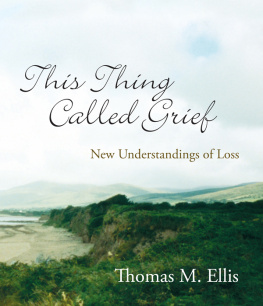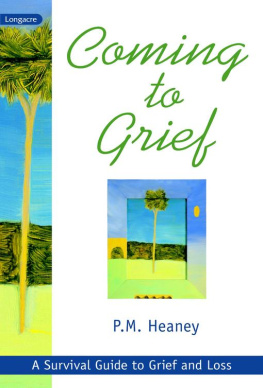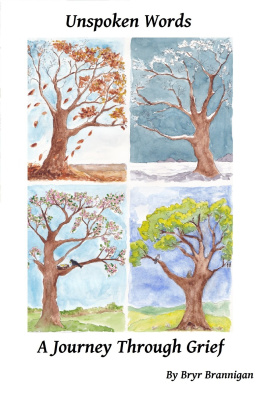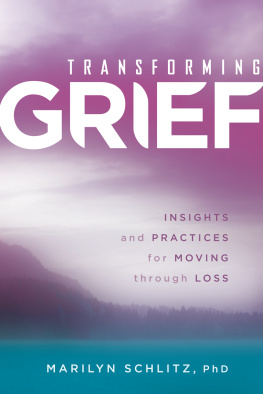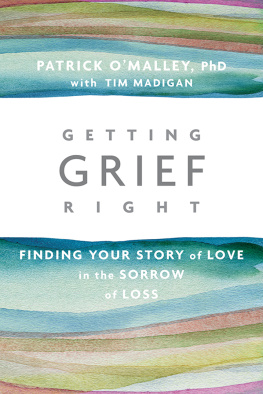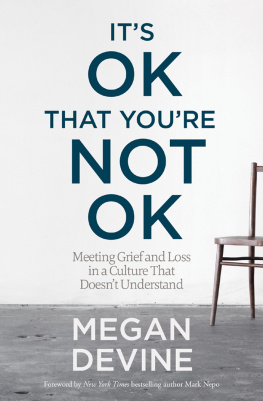
For those who are the stuff of other peoples nightmares.
Exposed to all that is lost, she sings with a stray girl who is also herself, her amulet.
ALEJANDRA PIZARNIK
For small creatures such as we the vastness is bearable only through love.
CARL SAGAN
CONTENTS
FOREWORD
There is a twin paradox in being human. First, no one can live your life for youno one can face what is yours to face or feel what is yours to feeland no one can make it alone. Secondly, in living our one life, we are here to love and lose. No one knows why. It is just so. If we commit to loving, we will inevitably know loss and grief. If we try to avoid loss and grief, we will never truly love. Yet powerfully and mysteriously, knowing both love and loss is what brings us fully and deeply alive.
Having known love and loss deeply, Megan Devine is a strong and caring companion. Having lost a loved one, she knows that life is forever changed. There is no getting over it, but only getting under it. Loss and grief change our landscape. The terrain is forever different and there is no normal to return to. There is only the inner task of making a new and accurate map. As Megan so wisely says, Were not here to fix our pain, but to tend to it.
The truth is that those who suffer carry a wisdom that the rest of us need. And given that we live in a society that is afraid to feel, its important to open each other to the depth of the human journey, which can only be known through the life of our feelings.
Ultimately, the true bond of love and friendship is knit by how much we can experience love and loss together, without judging or pushing each other; not letting each other drown in the deep or rescuing each other from the baptism of soul that waits there. As Megan affirms, Real safety is in entering each others pain, [and] recognizing ourselves inside it.
Our work, alone and together, is not to minimize the pain or loss we feel, but to investigate what these life-changing incidents are opening in us. I have learned through my own pain and grief that to be broken is no reason to see all things as broken. And so, the gift and practice of being human centers on the effort to restore what matters and, when in trouble, to make good use of our heart.
Like John of the Cross, who faced the dark night of the soul, and like Jacob, who wrestled the nameless angel in the bottom of the ravine, Megan lost her partner Matt and wrestled through a long dark ravine. And the truth she arrives with is not that everything will be alright or repaired or forgotten. But that things will evolve and root as real, that those who suffer great loss will be inextricably woven with life again, though everything will change.
In Dantes Divine Comedy, Virgil is Dantes guide through hell into purgatory, right up until Dante faces a wall of flame, which he balks at, afraid. But Virgil tells him, You have no choice. It is the fire that will burn but not consume. Dante is still afraid. Sensing this, Virgil puts his hand on his shoulder and repeats, You have no choice. Dante then summons his courage and enters.
Everyone who lives comes upon this wall of fire. Like Virgil, Megan is a guide through hell, up to the wall of fire we each must pass through alone, beyond which we become our own guides. Like Virgil, Megan points out a way, not the way, but a way, offering those in the mad turmoil of grief a few things to hold onto. It is courageous work to love and lose and keep each other company, no matter how long the road. And Megan is a courageous teacher. If you are in the grip of grief, reach for this book. It will help you carry what is yours to carry while making the journey less alone.
Mark Nepo
ACKNOWLEDGMENTS
I always read the dedications and acknowledgments in a book. I like to see the relationship lines, the mentors and guides, the life that surrounds the book, and the one who wrote it. A book is a tiny fragment of a life, and a by-product of it. They inter-feed, which is a weird way to put it. This book was hard for me, and beautiful, in ways that arent always clear on the page but were clearly held by the people in my life. Samantha (who held everything), Cynthia, Rosie, TC, Steph, Michael, Sarah, Naga, Wit, and another handful of people who came in and out of this timethank you for being there, for listening, and for digging me out when I got lost. To my twin loves, who during the writing of this book were my play, my adventure, my respite, and my joyfor as long as it lasts, and beyond, thank you. Thank you to my tango community, for being the one consistent place I could stop writing, even in my head. My writing students, for so many reasons, are the backbone of this book, their emails and notes often coming at just the right moment to remind me why I do this work. Thank you, my loves, for sharing your hearts and your words with me. To my friends and allies who died in the years since Matts death, I still feel you around me. Then, as now, your support means more than worlds to me. Thank you to my agent, David Fugate, who believed in the message of cultural transformation from the moment we first talked about grief. And to my team at Sounds True, as Ive told you before, I feel loved and cared for by you, and that is everything. Thank you.
And though it seems strange, or maybe arrogant, I owe an unending thank-you to myselfto the person I was, the person at the river that day and in the years soon after, the one who lived when she did not want to. This book is a love letter back to her, an act of time travel. In so many ways, through this book, I want for myself what I want for all who read itto reach back with my words, to hold her, to help her survive. I am so glad she lived.
INTRODUCTION
The way we deal with grief in our culture is broken. I thought I knew quite a bit about grief. After all, Id been a psychotherapist in private practice for nearly a decade. I worked with hundreds of peoplefrom those wrestling with substance addiction and patterns of homelessness to private practice clients facing decades-old abuse, trauma, and grief. Id worked in sexual violence education and advocacy, helping people navigate some of the most horrific experiences of their lives. I studied the cutting edge of emotional literacy and resilience. I cared deeply and felt that I was doing important, valuable work.
And then, on a beautiful, ordinary summer day in 2009, I watched my partner drown. Matt was strong, fit, and healthy. He was just three months away from his fortieth birthday. With his abilities and experience, there was no reason he should have drowned. It was random, unexpected, and it tore my world apart.
After Matt died, I wanted to call every one of my clients and apologize for my ignorance. Though Id been skilled in deep emotional work, Matts death revealed an entirely different world. None of what I knew applied to loss of that magnitude. With all my experience and training, if anyone could be prepared to deal with that kind of loss, it shouldve been me. But nothing could have prepared me for that. None of what Id learned mattered.
And I wasnt alone.
In the first years after Matts death, I slowly discovered a community of grieving people. Writers, activists, professors, social workers, and scientists in our professional worlds, our small band of young widows and parents grieving the loss of young children came together in our shared experience of pain. But it wasnt just loss that we shared. Every one of us had felt judged, shamed, and corrected in our grief. We shared stories of being encouraged to get over it, put the past behind us, and stop talking about those we had lost. We were admonished to move on with our lives and told we needed these deaths in order to learn what was important in life. Even those who tried to help ended up hurting. Platitudes and advice, even when said with good intentions, came across as dismissive, reducing such great pain to greeting card one-liners.
Next page
